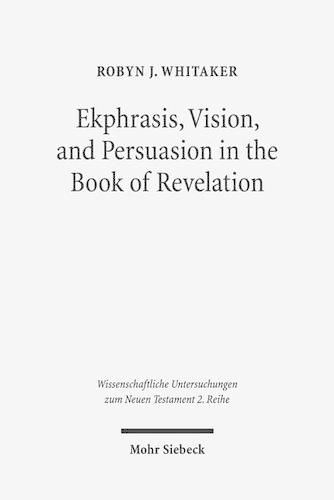Readings Newsletter
Become a Readings Member to make your shopping experience even easier.
Sign in or sign up for free!
You’re not far away from qualifying for FREE standard shipping within Australia
You’ve qualified for FREE standard shipping within Australia
The cart is loading…






Robyn J. Whitaker demonstrates how a rhetorical analysis of the visions of God in the Book of Revelation reveals the persuasive role of the visions of God and the Lamb in John’s argument against cultic images and worship. Through the rhetorical technique of ekphrasis, the author adapts his Jewish sources to make present a God who is perceived to be spatially or temporally absent. In doing so, he offers a verbal-visual image that seeks to combat the power of imperial cult images. Locating the text in its religious and rhetorical context, Robyn J. Whitaker argues that the author participates in an ongoing debate over whether writers or sculptors (artists) could best represent the gods; that is, whether God is best represented by words or images. John ultimately mounts an argument for the epiphanic power of words and of his text in particular as a way to encounter divine presence and, moreover, to facilitate worship of the divine.
$9.00 standard shipping within Australia
FREE standard shipping within Australia for orders over $100.00
Express & International shipping calculated at checkout
Robyn J. Whitaker demonstrates how a rhetorical analysis of the visions of God in the Book of Revelation reveals the persuasive role of the visions of God and the Lamb in John’s argument against cultic images and worship. Through the rhetorical technique of ekphrasis, the author adapts his Jewish sources to make present a God who is perceived to be spatially or temporally absent. In doing so, he offers a verbal-visual image that seeks to combat the power of imperial cult images. Locating the text in its religious and rhetorical context, Robyn J. Whitaker argues that the author participates in an ongoing debate over whether writers or sculptors (artists) could best represent the gods; that is, whether God is best represented by words or images. John ultimately mounts an argument for the epiphanic power of words and of his text in particular as a way to encounter divine presence and, moreover, to facilitate worship of the divine.